It’s been hailed as one of the most successful comebacks in business history. Luckin Coffee, which was on the verge of collapse in 2020 after an accounting scandal that rocked the Nasdaq, somehow re-emerged in 2024 seemingly stronger than ever. The Chinese coffee chain went from reputational chernobyl and bankruptcy proceedings in 2022 to opening 8,034 stores in 2023 — equal to almost one per hour — and recorded a 87 percent growth in net revenues.
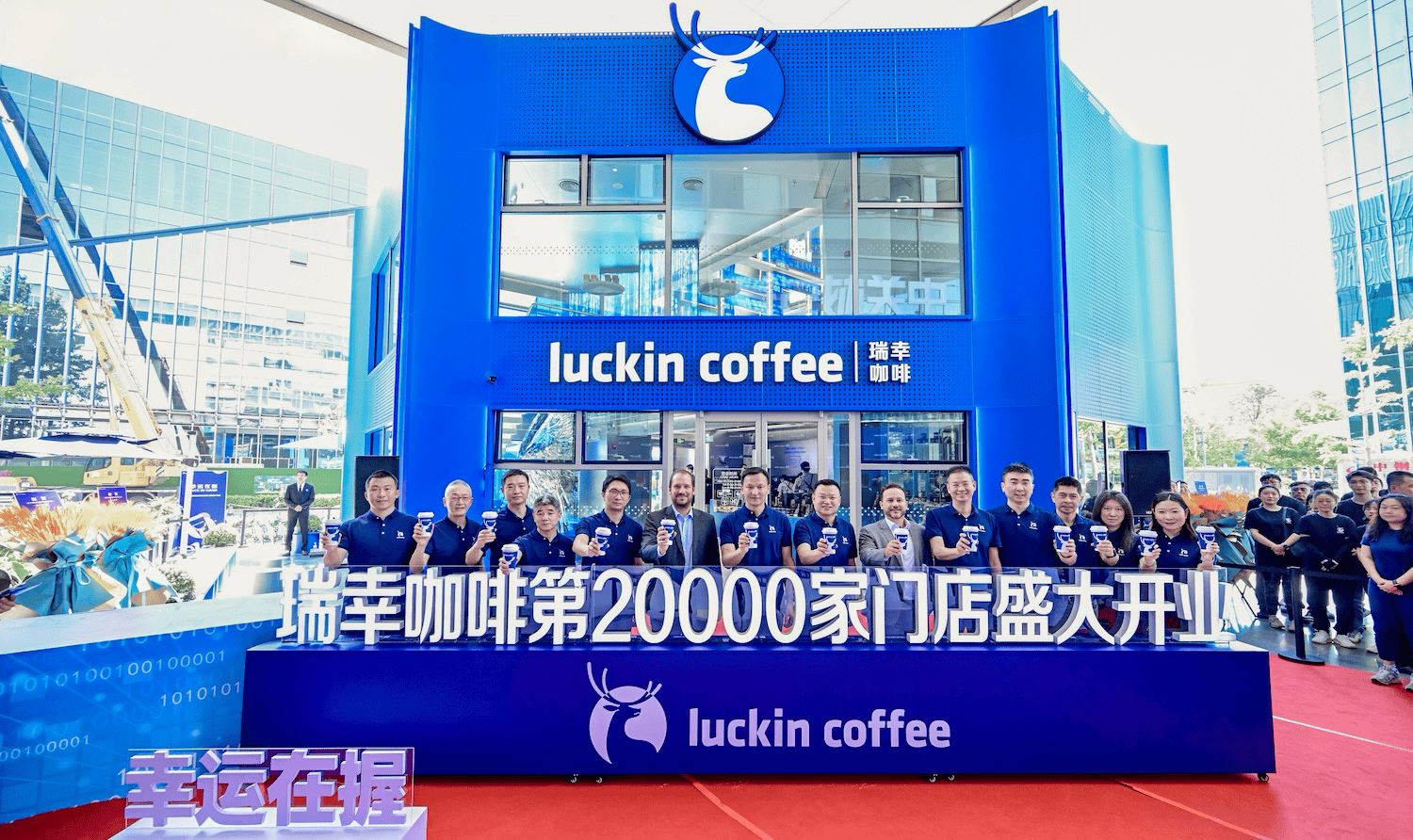
With its aggressive, back-from-the-dead expansion, Luckin is now the largest coffee chain in China, having overtaken Starbucks both in store count and revenues. And it shows no signs of slowing down: The chain has expanded its footprint to Singapore, is accelerating plans in Southeast Asia, and is even eyeing Starbucks’ home turf, the $28-billion U.S. market.
“Luckin had the scandal; they were written off,” says Joel Silverstein, managing partner at Canyon Springs Advisors, a consulting firm focused on the hospitality industry. “It’s quite an amazing story that they came back to be as successful as they are.”
Indeed, the turnaround has been formidable. After being accused by short sellers of fraud less than a year following its public listing, Luckin admitted to inflating $310 million in sales in 2020. The company’s stock crashed, it was booted from the Nasdaq exchange and forced to pay a $180 million fine to the SEC, and in 2021, it wrapped up a class action lawsuit from investors with a $187.5 million settlement. (In China, it also received a $8.37 million slap on the wrist.)
In the immediate aftermath, Luckin became shorthand for irresponsible Chinese business practices and a cautionary tale for Western investors eager to partake in the Chinese economic miracle.
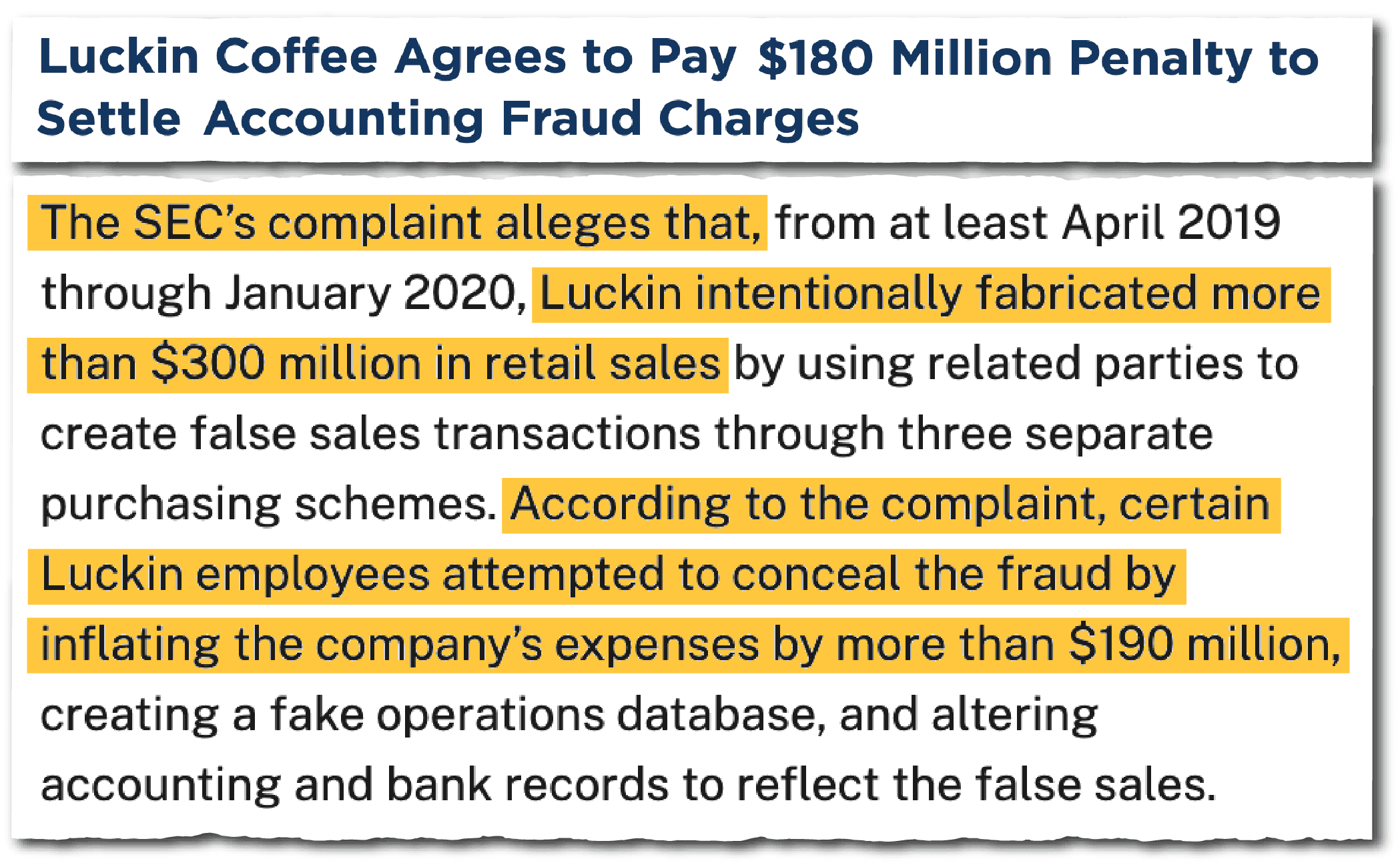
And yet, the controversy hardly left a dent in Luckin’s reputation among Chinese consumers — a fact that was often overlooked in the West.
“Chinese consumers don’t typically care about what’s going on in the background of a company, as long as they can benefit from the products,” says Yaling Jiang, founder of consultancy ApertureChina. “A lot of the comments [about Luckin] on Chinese social media said ‘Great, they’re ripping off American investors so that we can get cheaper products.’”
Chinese consumers’ willingness to see themselves as beneficiaries, rather than victims, of Luckin’s fraud has played a large role in the company’s ability to stage its legendary comeback. But equally important, investors and analysts say, is the Shakespearean shakeup of the company’s leadership.
Chinese consumers don’t typically care about what’s going on in the background of a company… A lot of the comments [about Luckin] on Chinese social media said ‘Great, they’re ripping off American investors so that we can get cheaper products.’Yaling Jiang, founder of consultancy ApertureChina
The company is now helmed by Guo Jinyi, a co-founder, who took over as chief executive officer following the controversy and the ousting of his initial partners. “The changes observers see from the outside is only a tip of the iceberg,” he said in 2023. “Other than our initial name, we are a brand new company.”
Crucially, Guo has managed to align himself with David Li, the founder of Centurium Capital, a Beijing-based private equity firm that was one of Luckin’s earliest backers after it was founded in 2017. David Li was good friends with Charles Lu, the original Luckin chairman, and has said he was unaware of the fraud, calling it a betrayal that made him question life itself.

(Both Centurium and Luckin have declined to comment, citing “a silence period” at the end of a business quarter.)
In 2020, Li and Lu battled for control of the company in a boardroom showdown, with each faction filing competing motions within the same day to demand each other’s removal. Lu was eventually ousted from the company in July, Guo took the helm, and Centurium Capital then injected $240 million into Luckin, giving it a controlling stake in the company at a critical time.
Luckin has since managed to convert even its most staunch critics, including Sean Ma, founder of hedge fund Snow Lake Capital and reportedly the author of the original exposé that tanked Luckin. In a social media post in late 2022, Ma described Luckin’s turnaround as “a miracle in China’s business history” and said he had put an unspecified amount of money in the company.
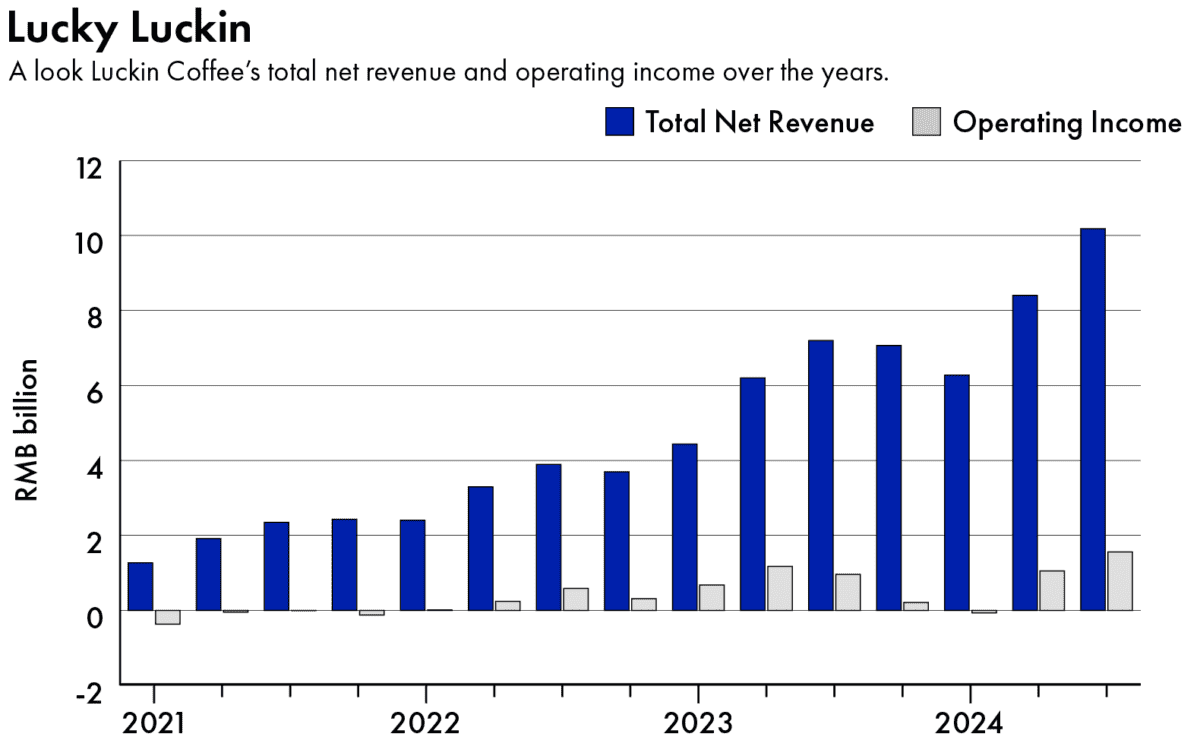
But the Luckin power struggle was far from over. Instead, it spilled onto the street in 2022 as Charles Lu and Jenny Zhiya Qian, the original Luckin CEO, debuted a new coffee chain: Cotti Coffee.
Cotti has leaned into its rivalry with Luckin and seems to relish needling the Luckin team any way it can. From its backend infrastructure to its menu, Cotti is almost a clone of Luckin and unabashed about showing it. After a period of intense expansion in 2023, Cotti’s more than 10,000 stores are, on average, 240 metres away from Luckin stores.
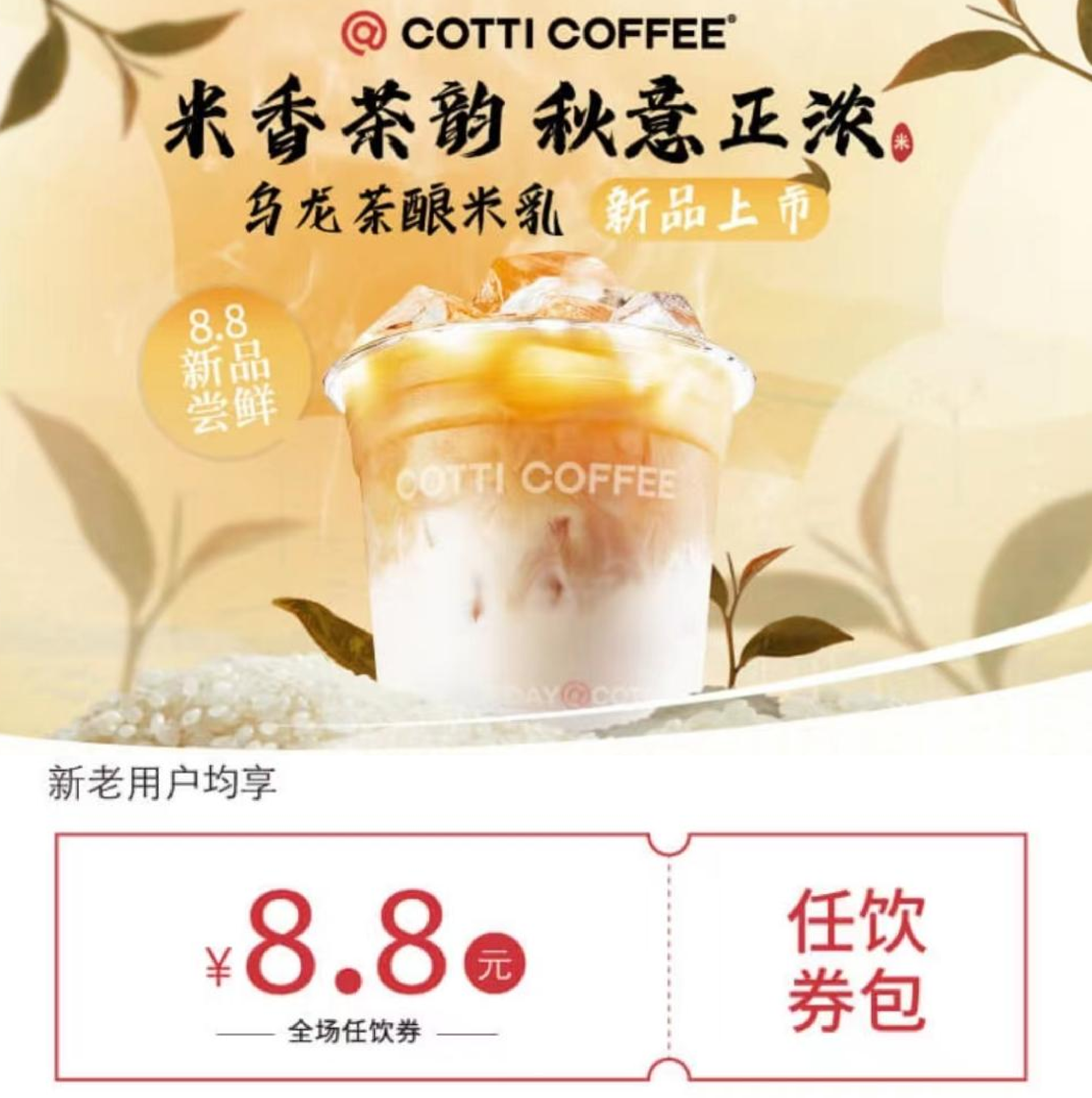
Its explosive rise and aggressive tactics now threaten to doom Luckin’s rebound and could even undermine the larger coffee industry in China. In its effort to undercut competitors, for instance, Cotti has initiated a price war that bruised Luckin’s profit margins and drove smaller coffee shops out of business. Starting in early 2023, Cotti offered all its drinks at a discounted price of 9.9 yuan ($1.36) and then dropped it to 8.8 yuan ($1.21) when Luckin tried to match its price, putting up banners that read “Luckin founders treat you to 8.8 yuan coffee.”
“Luckin sees Cotti as a very serious threat,” says Jianggan Li, founder of Momentum Works, a Singapore-based research firm, noting that Luckin stores with a Cotti nearby issue vouchers to consumers more frequently. “Luckin has been putting a lot of effort into trying to kill Cotti.”
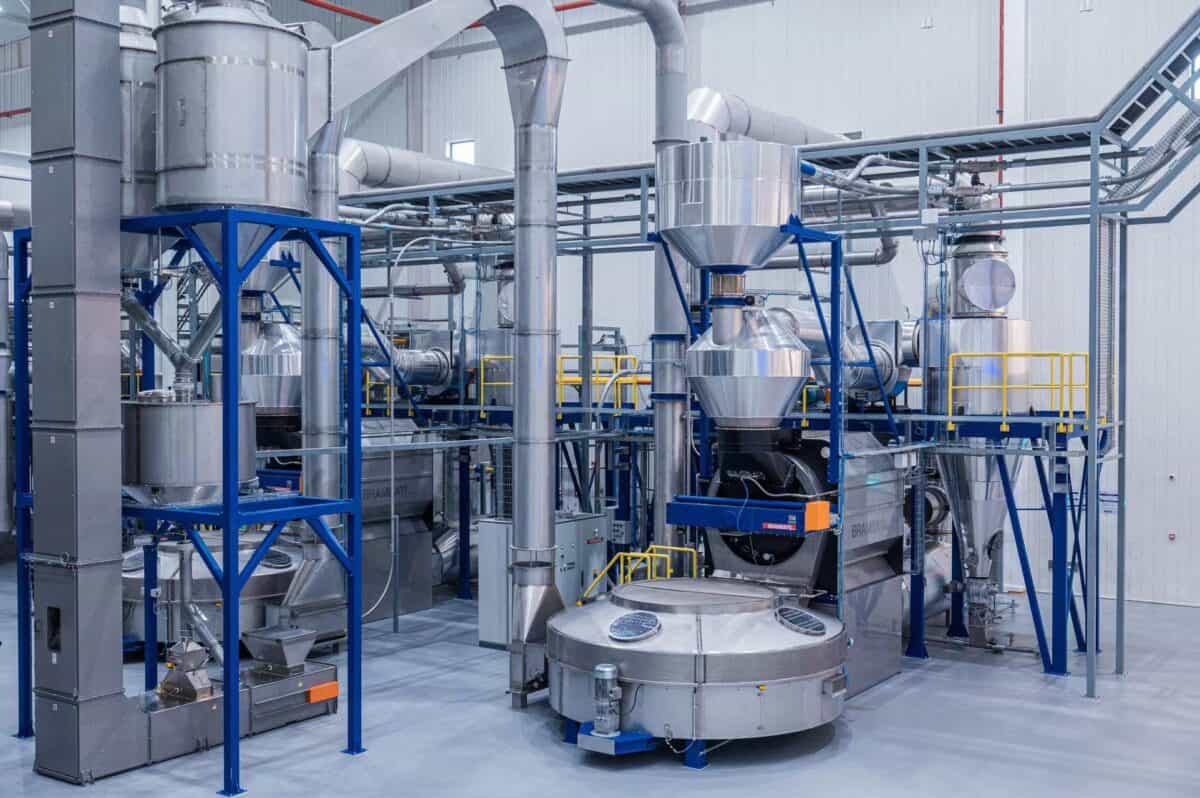
In April, 2024, Luckin announced that its roasting plant in Jiangsu, Kunshan, had started production. The total investment into the plant will reach around $120 million, and the annual roasting capacity is approximately 30,000 tons. Credit: Luckin
Indeed, as China’s domestic consumption slows and the price war squeezes bottom lines, the coffee wars in China are already claiming victims. Seesaw Coffee, a Shanghai-based chain that specializes in artisanal coffee, closed a quarter of its 100 stores in the past year and admitted to cash flow problems. Pacific Coffee, a Hong Kong chain founded in 1992, is down to 50 outlets in mainland China, less than a third compared to 2023, according to Canyan Data, a market information provider.
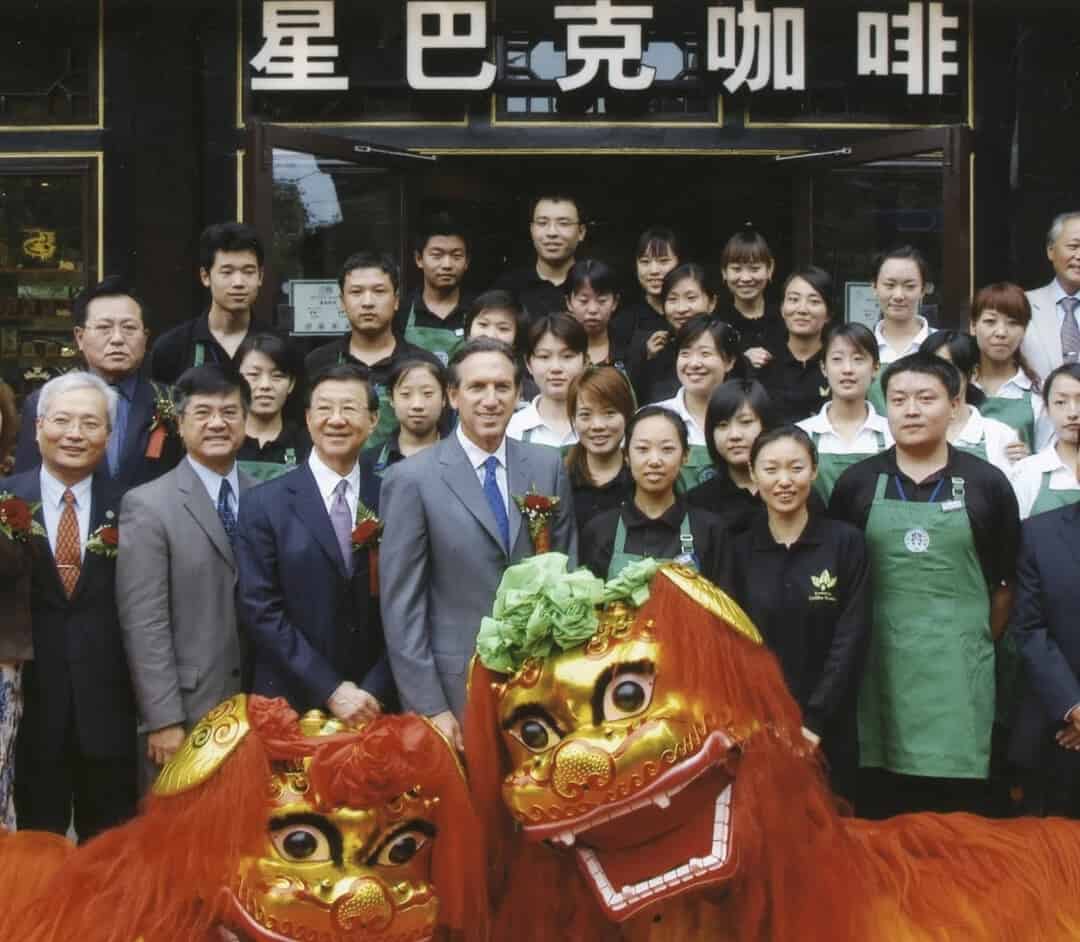
Even Starbucks, which has positioned itself as a premium brand offering quality coffee, free Wi-Fi and a space to hang out, is not exempted: The U.S. company reported a 14 percent drop in comparable store sales in China in the fourth quarter of the year. The company recently hired its first-ever chief growth officer in the region to help shake things up.
With low overhead, large footprints and deep experience in the Chinese market, Luckin and Cotti both have a good chance of surviving in the short term, but if history is any guide, it won’t be pretty.
FROM FRIEND TO FOE
Before Cotti, there was only one rival that Luckin cared about: Starbucks. The U.S. coffee chain opened its first store in China in 1999 and grew to around 7,600 outlets by late last year. As coffee consumption increases and spreads in China, many entrepreneurs have seen opportunity. Sales of coffee in China, after all, are expected to reach over 340 billion yuan ($46.6 billion) by 2029.
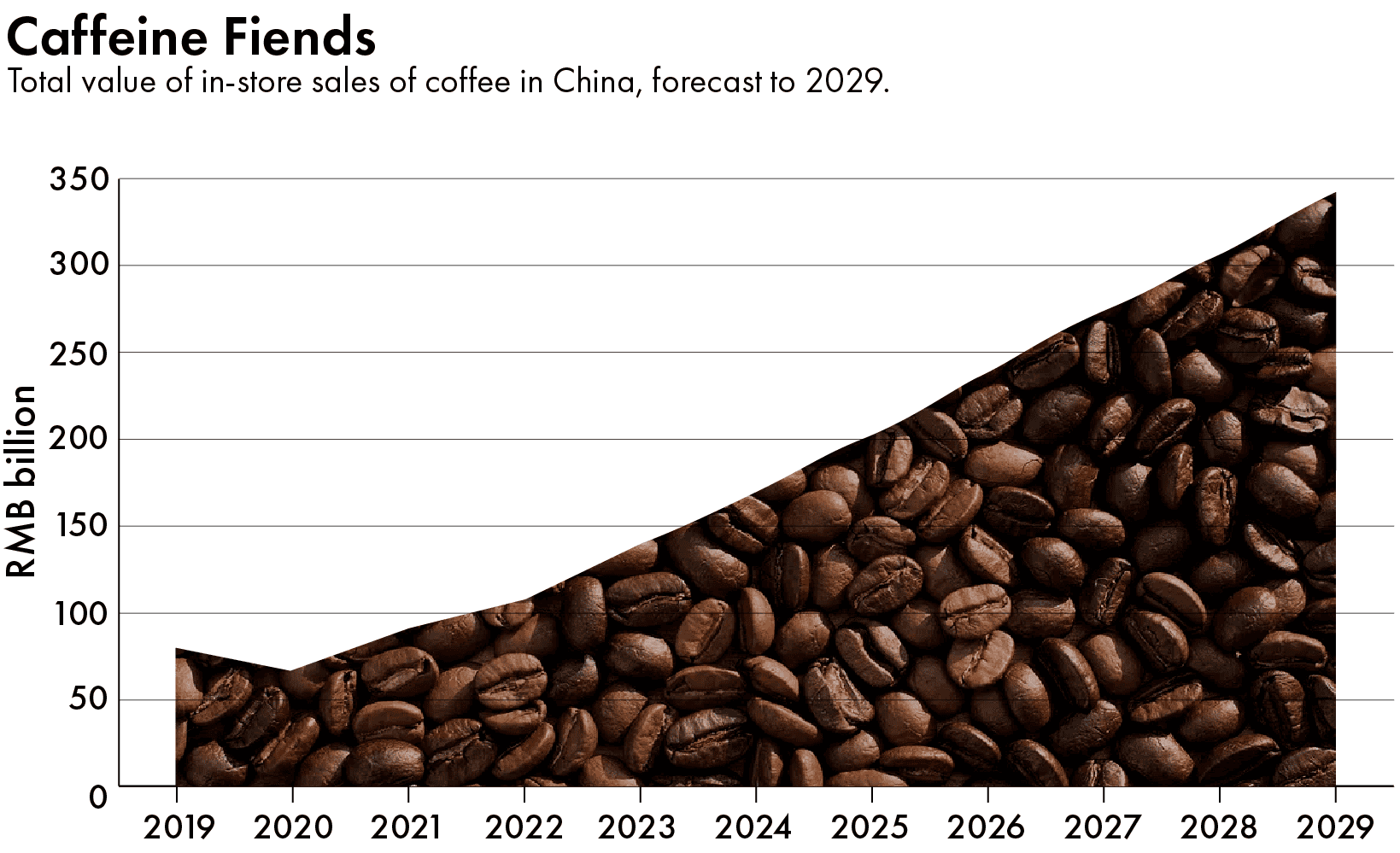
In late 2016, four friends and business associates at a Beijing-based chauffeur car service decided they wanted in.
Guo Jinyi was an assistant to Charles Lu (Lu Zhengyao) at UCar, while Jenny Zhiya Qian was chief operating officer. David Li (Li Hui), a Yale graduate who cut his teeth at foreign banks such as Morgan Stanley and Goldman Sachs, was named as vice chairman at UCar after previously leading several rounds of investment into Lu’s ventures as a managing director at Warburg Pincus, one of the world’s largest private equity firms.
Underneath the scandal, there was a profitable, core business. The margin on coffee is very high, and the cost of operating a small store is low.John Zolidis, founder of the New York-based equity research firm Quo Vadis Capital
Guo, Qian and Lu peeled off to found Luckin, while Li founded Centurium. But the four stayed close. Centurium took part in Luckin’s first external funding round, which made the startup a unicorn in the summer of 2018. And Li has said that he got directly involved in the company during the second half of 2016, when he, Lu and Qian discussed everything from marketing and branding to financing strategies. Together they assembled a team of engineers to build Luckin’s technical infrastructure.
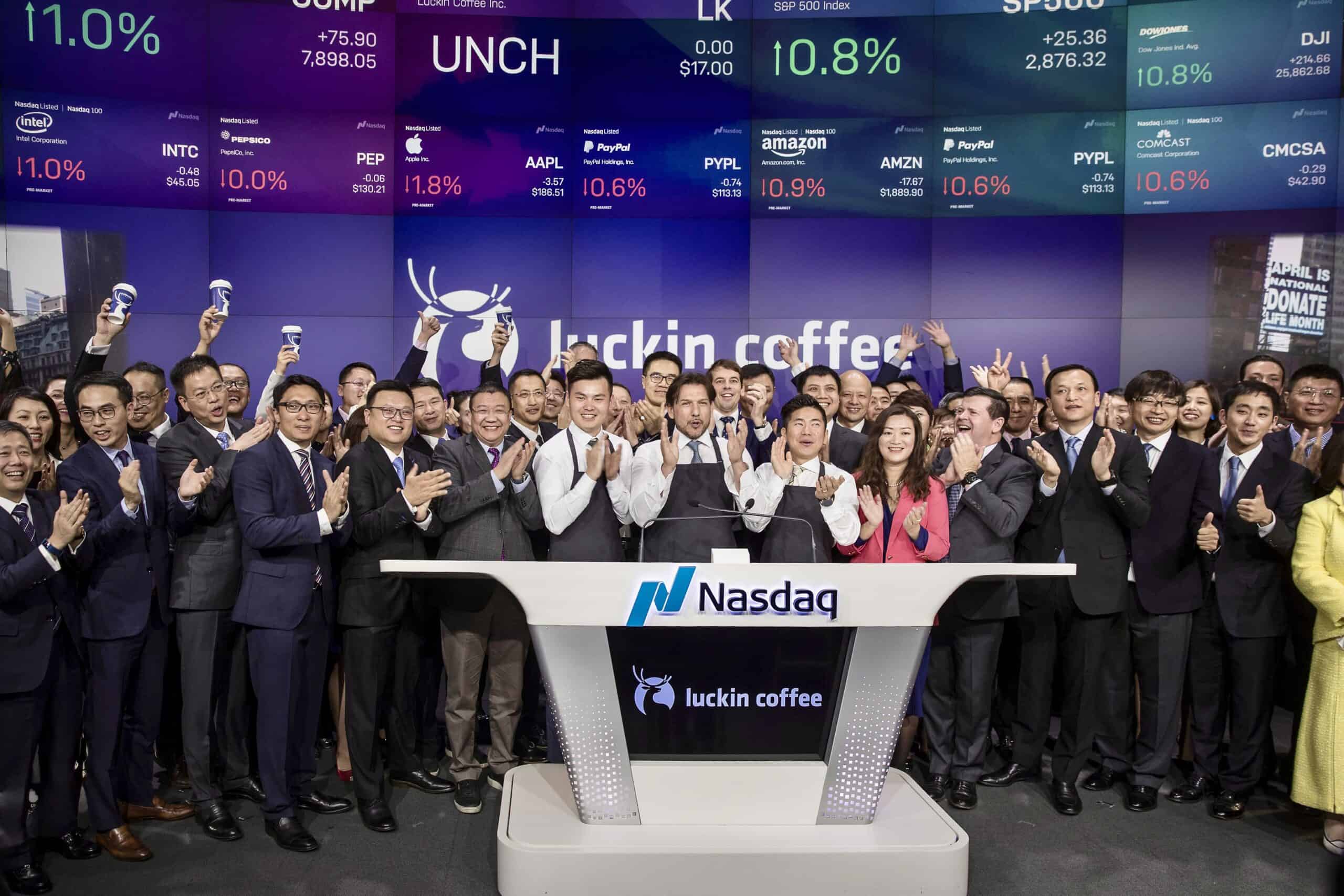
“You could say we were members of its co-founding team,” Li told the Chinese business outlet 36kr in 2019, two months after Luckin debuted on the Nasdaq stock exchange in New York, raising $645 million. “Whether it’s the company’s tactics or financing strategies, we had a clear timeline. Every step of the development was in accordance with our plan.”
That plan went awry, however, when Lu’s fraud came to light.
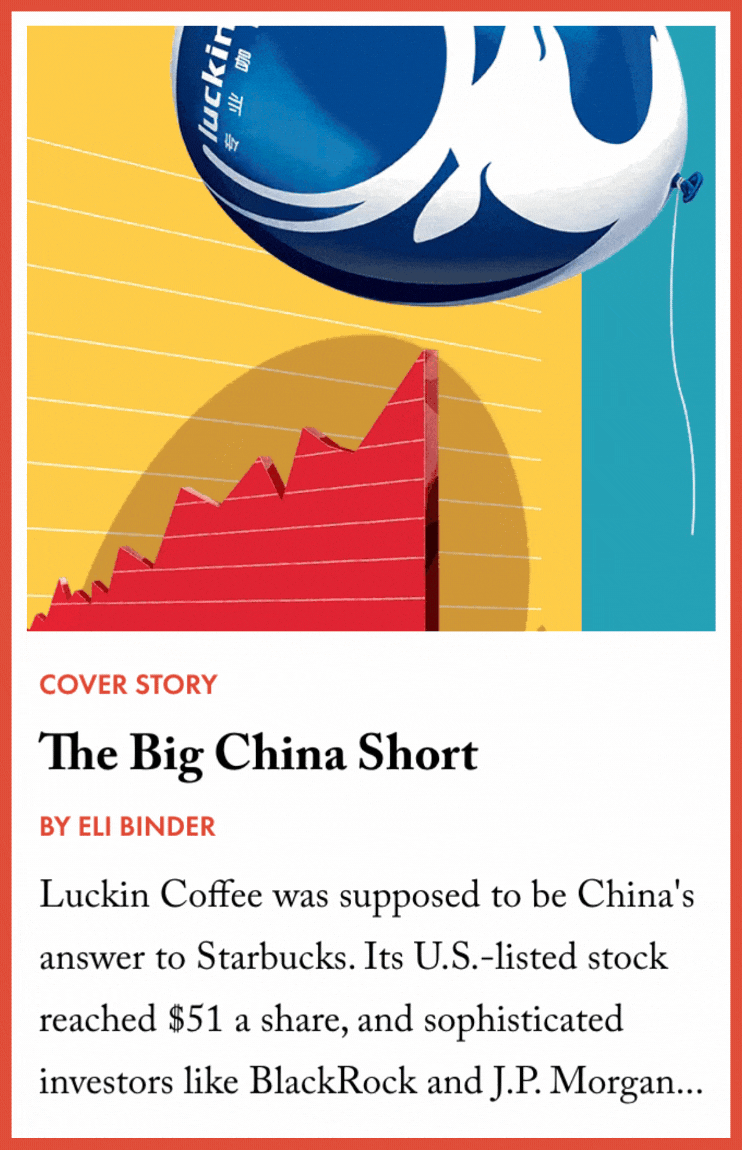
Unable to meet estimates for revenue and growth, “certain Luckin employees, including senior officers and directors, orchestrated and carried out three separate fraudulent schemes to fabricate coupon sales,” wrote a filing by the U.S. Securities and Exchange Commission in December 2020.
In one scheme, for instance, Luckin sold millions worth in coffee coupons to corporate customers set up by employees’ affiliates and recorded them as sales. It then returned the funds to the companies through false expenses, creating a loop of false transactions. As a Wall Street Journal report showed, the companies that were buying the coupons in bulk had links to Lu’s previous car ventures as well as his friends or relatives, while Qian, CEO at the time, approved the payments.
An internal investigation, conducted with the help of U.S. law firm Kirkland & Ellis and business advisory FTI Consulting, confirmed the active participation of Qian and several other employees, who were terminated. The investigation also concluded that Lu knew, or should have known, about the falsified sales, The Wall Street Journal reported. (“Rumor! Not true!,” Lu had said at the time.) Leaked slides showed that the probe found no evidence to suggest directors including Li and Guo had knowledge of, or participated in, the fabricated transactions.
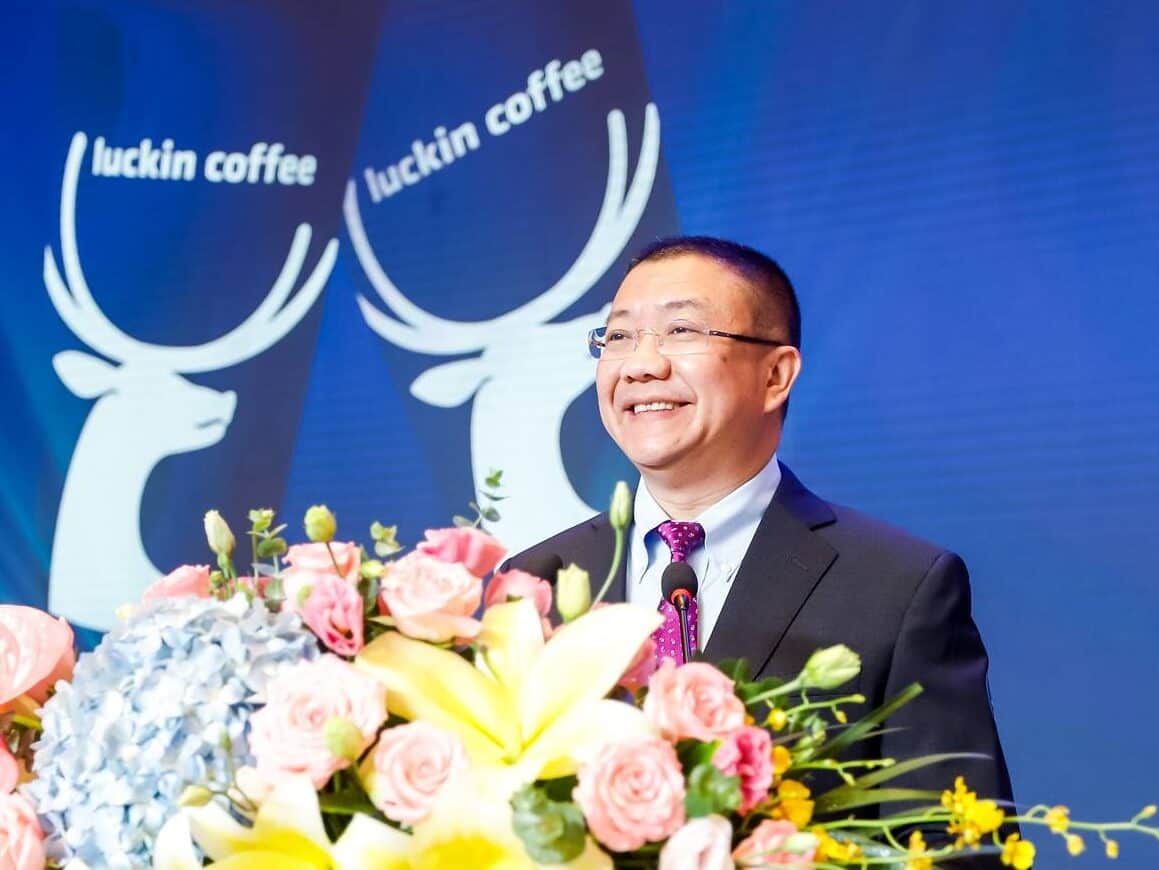
Despite the findings, Lu didn’t go down without a fight. And Li, whose reputation was now at stake, similarly refused to walk away. Instead, what ensued was a power struggle that dragged out for weeks in Luckin’s boardroom as both parties sought to wield influence.
Lu, who had run the company with an iron fist, survived an initial attempt to dethrone him, but both he and Li lost their seats in a reshuffling of the board. Lu sought to hold on to his power by installing his own nominees as directors, yet eventually lost all his leverage and voting rights in Luckin when the investment firm through which he owned the shares was liquidated by banks.
As an investment memo by Snow Lake Capital in 2022 noted, Lu selected Guo to replace Qian as acting CEO as he “planned to manipulate Guo to control Luckin after his own departure.” Guo was reportedly among the three board members who voted against Lu’s removal.
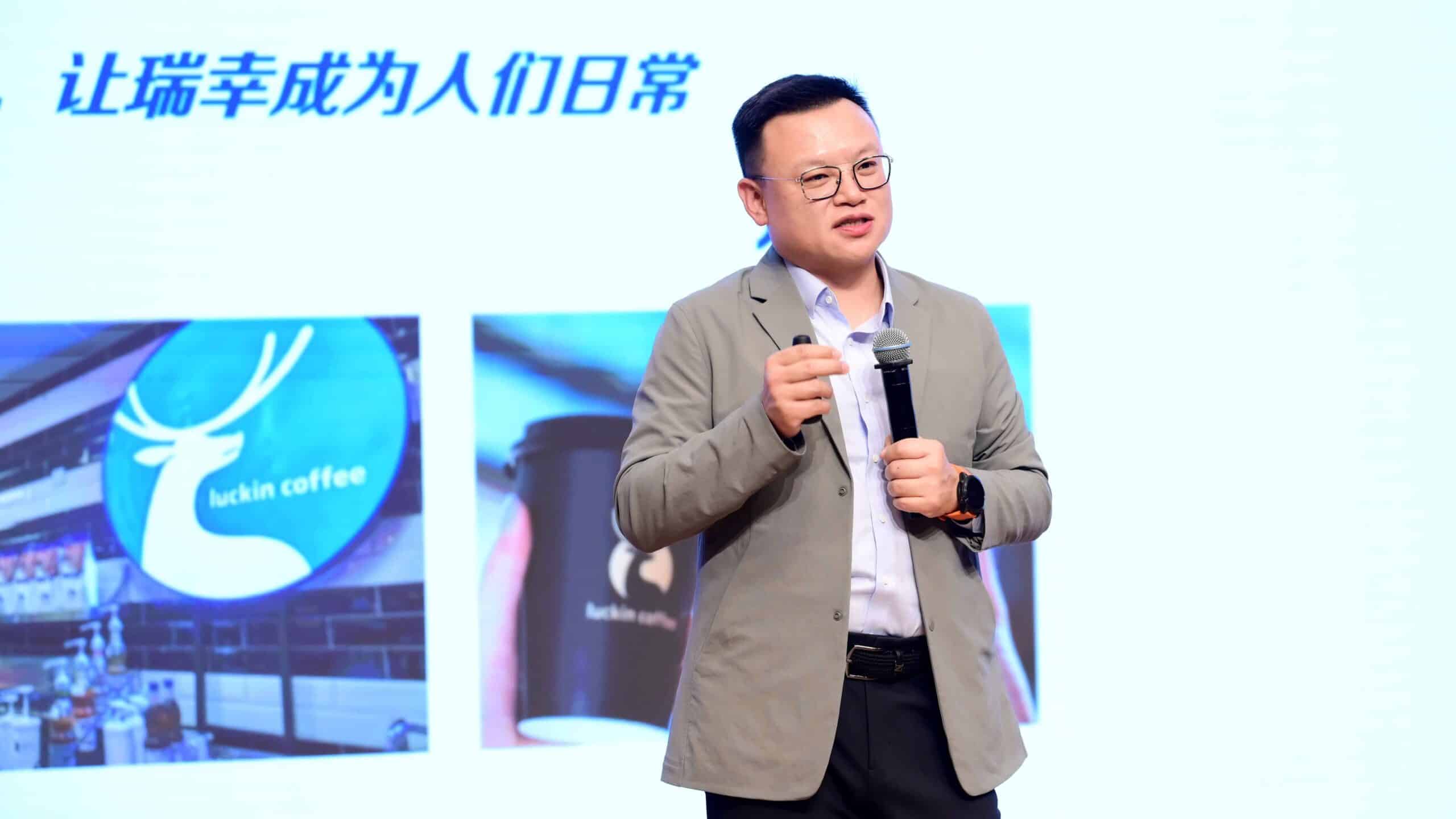
But Guo eventually switched sides.
As Guo recently explained, he was motivated to prove Luckin’s critics wrong. “If Luckin had died at the time, we would have been viewed as scammers or idiots,” he said last month, speaking on a panel at the China Europe International Business School (CEIBS) in Shanghai. “We wanted to save the company. We had no alternative.”
Guo’s decision was a slap in the face for Lu, who had viewed Guo as a confidante, according to the business magazine China Entrepreneur. In private meetings, Lu lambasted Guo for his betrayal and said he had found ways to retaliate, 36kr reported.
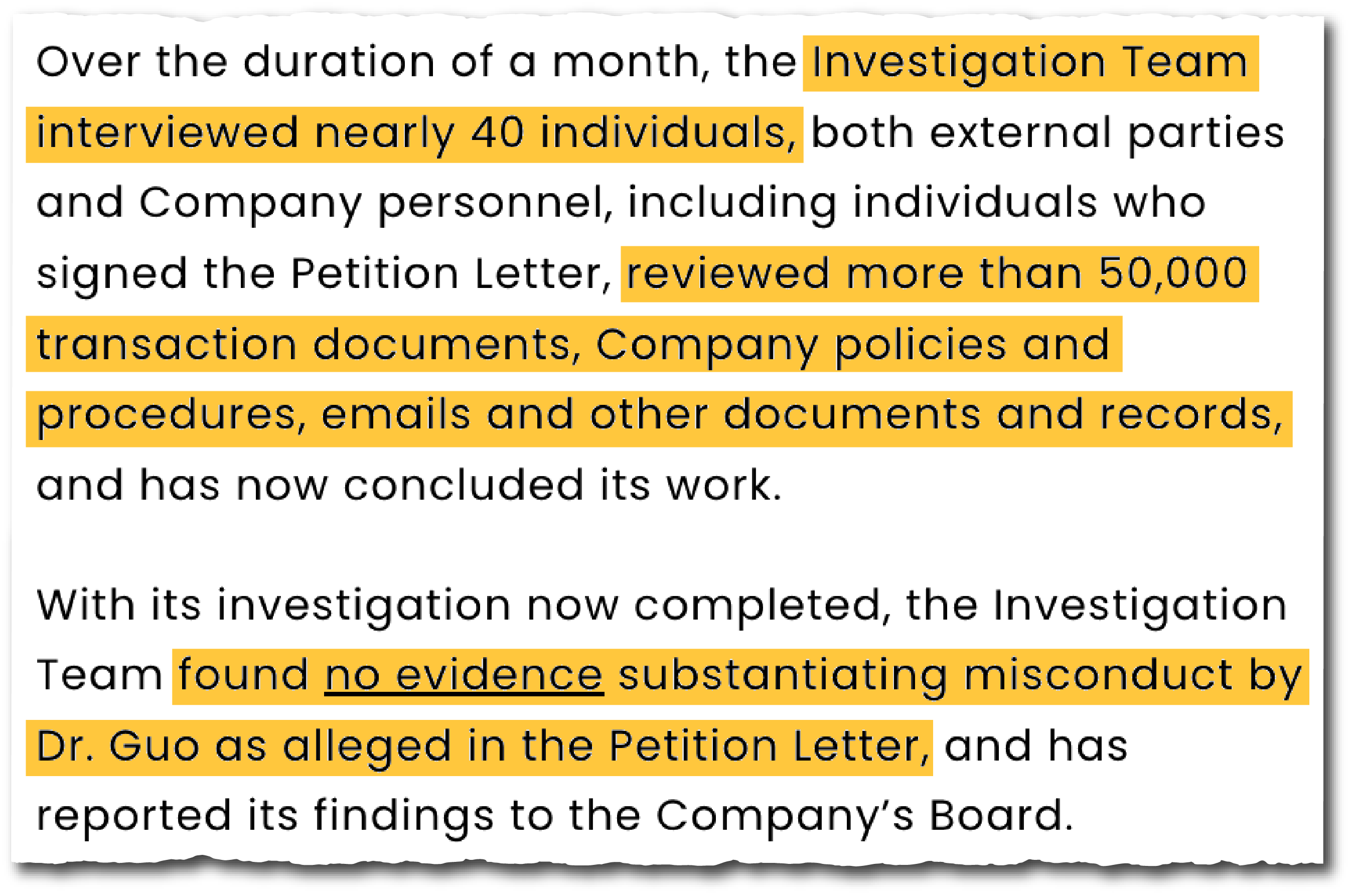
Indeed, the drama carried on. In January 2021, dozens of Luckin managers and employees penned a letter accusing Guo of cronyism, abuse of power and incompetence, and demanded his termination. An independent investigation cleared Guo of those allegations, and in an internal letter to his staff, Guo blamed Lu and Qian for orchestrating the episode to undermine the company, stressing the need to “sever ties with old forces” and continue Luckin’s reforms.
In the years since, Guo has rebuilt Luckin’s business by sticking to the fundamentals that analysts say were always behind the Luckin hype. Since its founding, Luckin customers could only order online or via a mobile app, which helps its headquarters keep close tabs on the performance of each product and store.
“Underneath the scandal, there was a profitable, core business,” says John Zolidis, founder of the New York-based equity research firm Quo Vadis Capital. “The margin on coffee is very high, and the cost of operating a small store is low.”
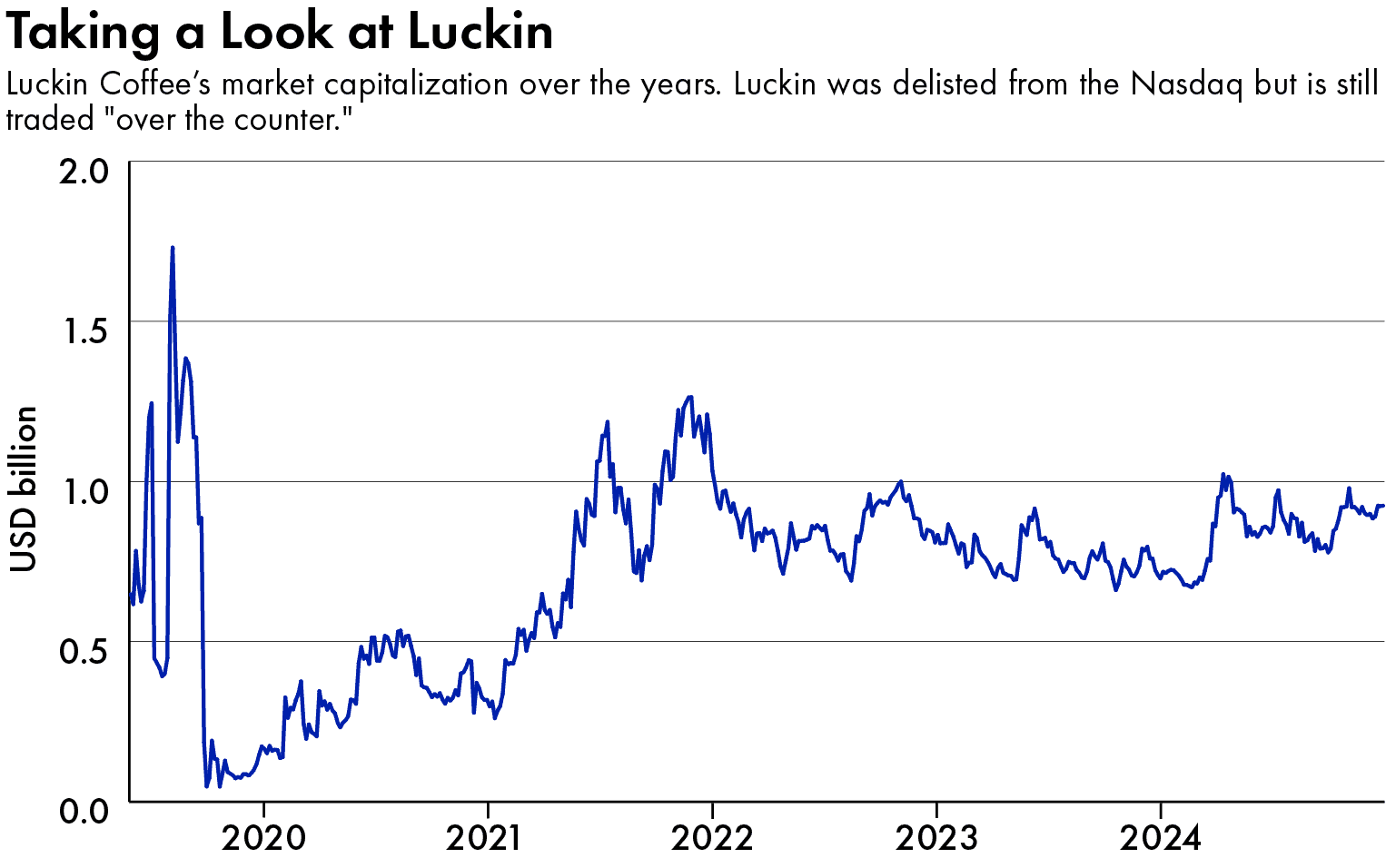
Guo, with the help of Centurium, doubled down on the original strategy, extending the same digital approach to develop product innovations. By assigning numbers to tasting notes, Luckin started churning out new concoctions like their bestselling coconut latte and a fizzy grape americano. The brand launched 102 products in 2023, almost one every three days, which helped distinguish it from other coffee spots.
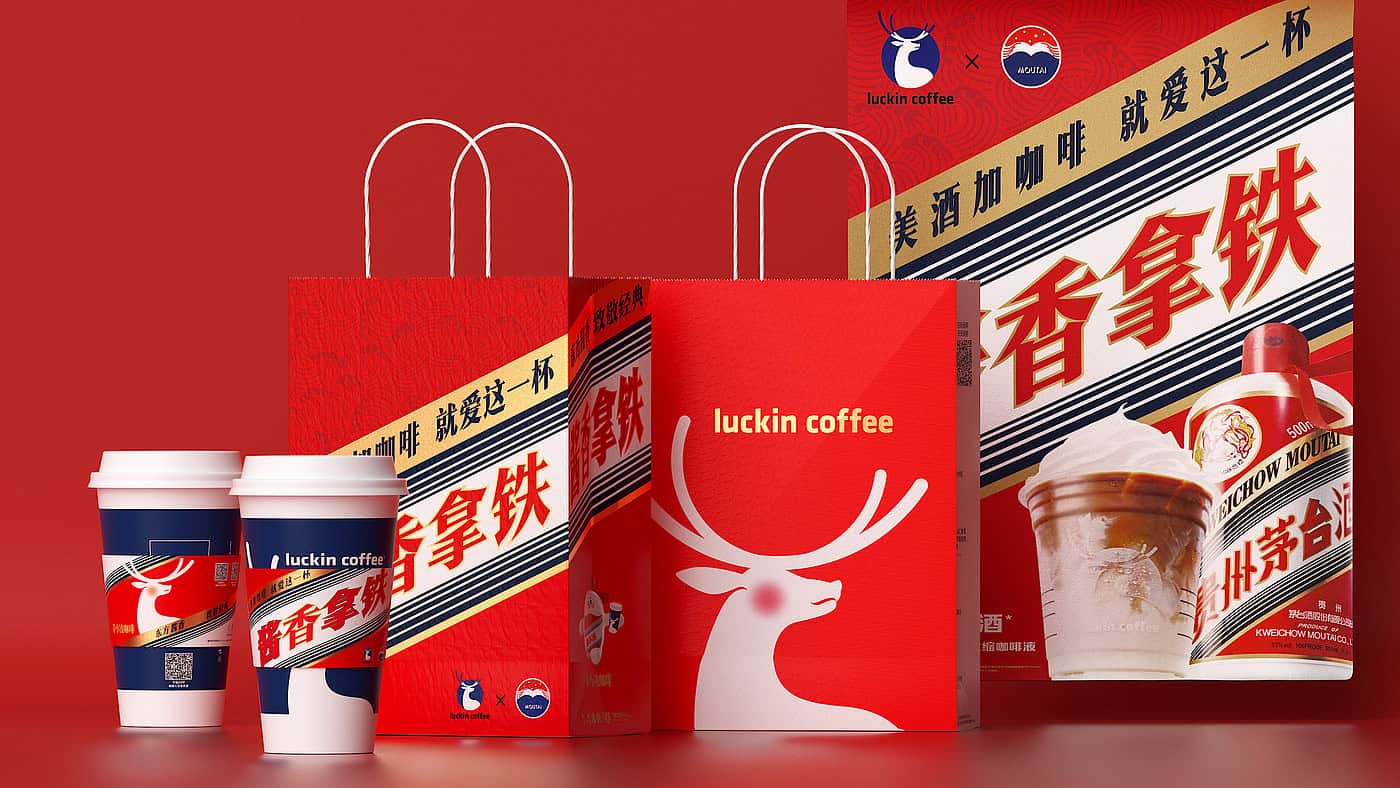
The efforts have paid off. According to a post on Weibo, Luckin sold over 5 million cups of its viral Moutai latte — a foamy drink infused with China’s national liquor — within the first day of launch, generating over $100 million yuan ($13.69 million) in revenue. It has also been quick to jump on other trends; a timely collaboration with the Chinese hit video game Black Myth: Wukong, for instance, sent flocks of customers to Luckin stores this summer.
But Lu is hardly one to stay on the sidelines. In the fall of 2022, he and Qian launched Cotti Coffee, and in its short two years, Cotti has unleashed a price war, burned cash to seize market share and even opened some of its stores right next door to Luckin.
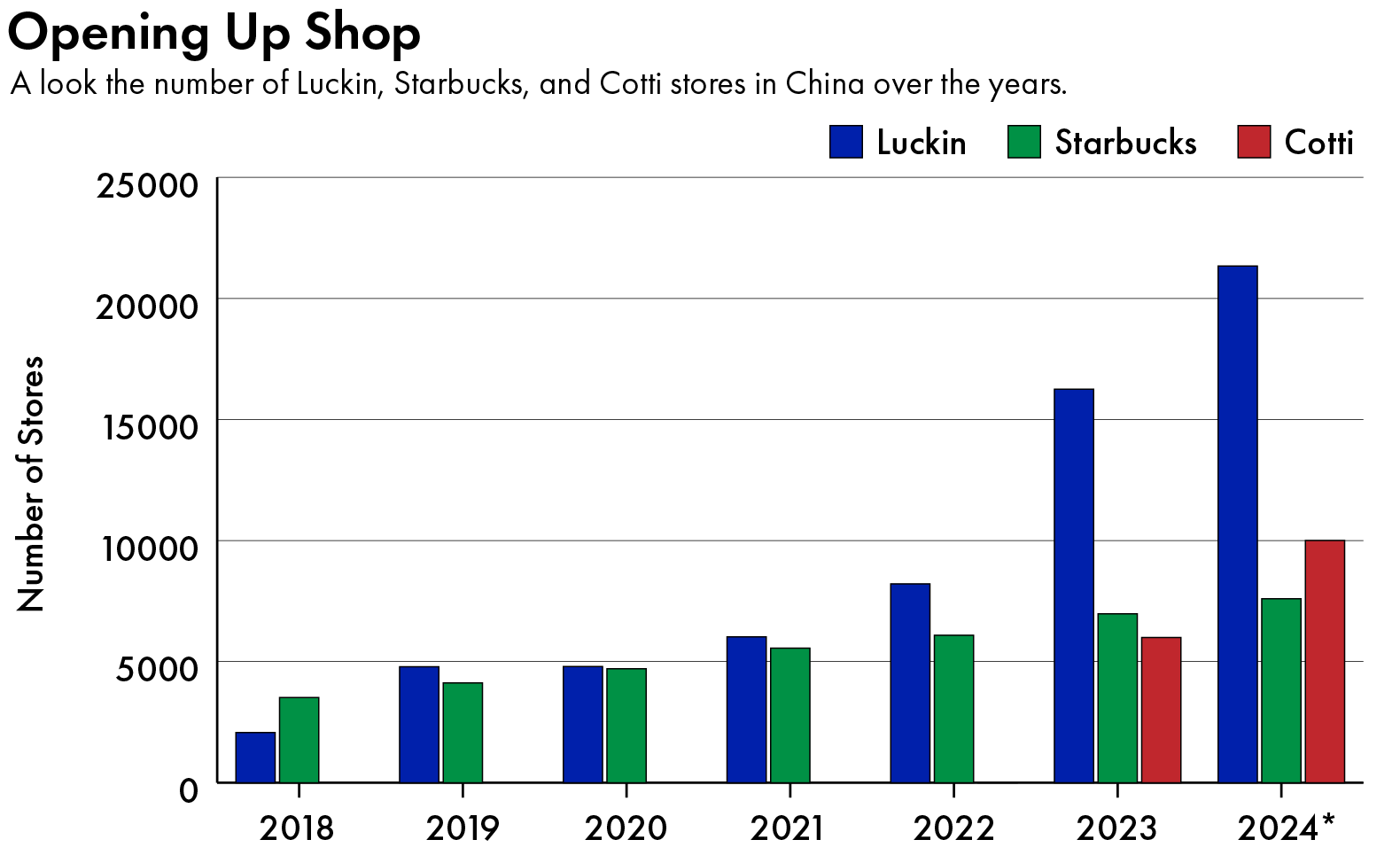
“Charles Lu has a lot of fans in China,” says Ed Sander, an analyst with Tech Buzz China. “Basically he spoke to his admirers and said, ‘Let’s start a new coffee dream.’”
The new dream, however, is in constant conversation with the old one.
The level of deflation in the beverage market is frightening. [Chinese companies] compete like hell, and they drive the cost way down, and nobody makes any money.Joel Silverstein, managing partner at Canyon Springs Advisors
After Luckin enlisted Chinese athlete Eileen Gu as brand ambassador, for instance, Cotti sponsored the Argentina national football team and signed Lionel Messi as ambassador. When Luckin’s Moutai latte took off, Cotti countered with the launch of a rice milk latte under the slogan: “Baijiu hurts your liver, rice milk nourishes your stomach.”

Left: A Luckin advert featuring brand ambassador Elieen Gu. Right: A Cotti advert featuring brand ambassador Lionel Messi, and other players from Argentina’s football team. Credit: Luckin, Cotti
Cotti also began its international expansion, opening its doors in Seoul, just months after Luckin set up shop in Singapore. A year and a half later, Cotti claims it is now in over 28 countries and regions, including Canada, the U.S. (in Hawaii and Los Angeles), Southeast Asia and the Middle East, which would mean it has overtaken Luckin in reach.
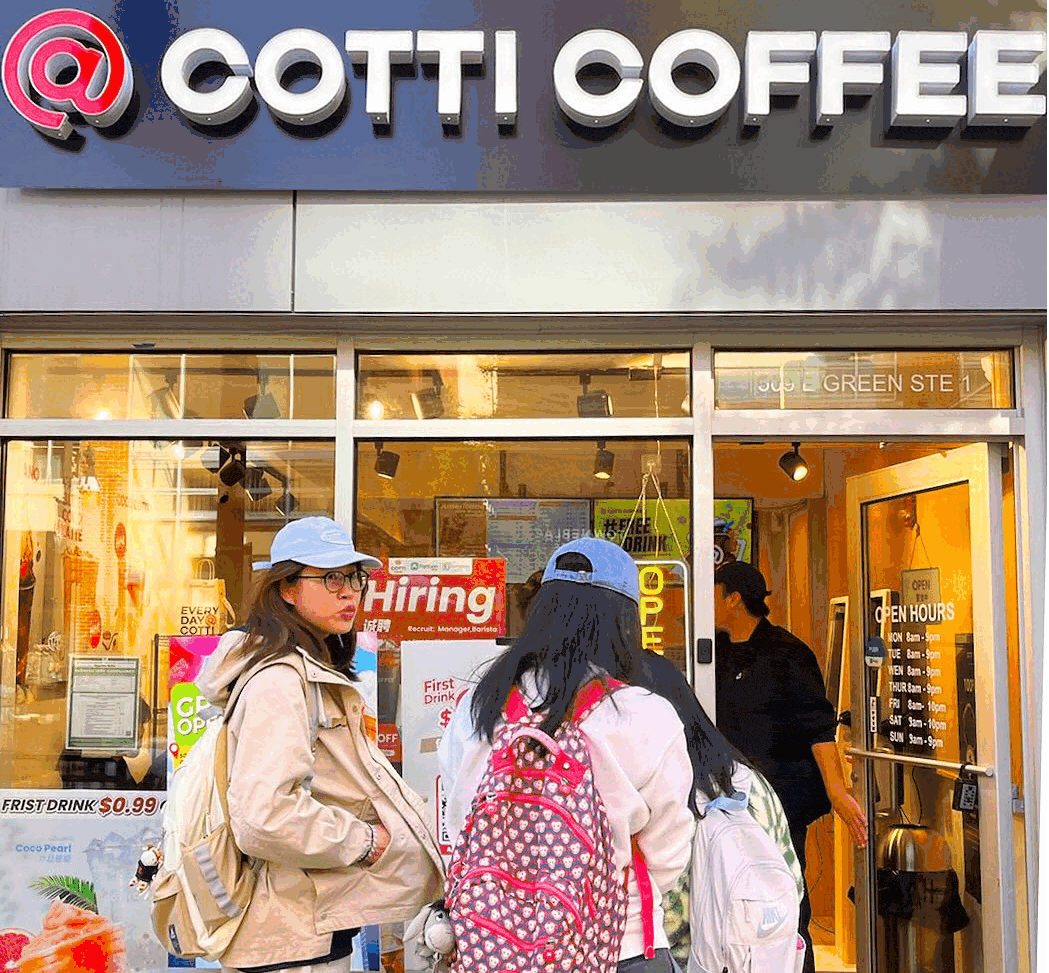
“Although launching Cotti Coffee can be characterized as a revenge move by Lu and team, it’s fair to say they are currently an established brand in the Chinese market and even abroad,” says Felipe Cabrera, founder of the China-based Ad Astra Coffee Consulting.
The accounting scandal, however, did leave a mark on Lu, who could no longer rely on institutional investors. To fund his comeback, Lu turned to his fan base instead, developing a franchise model for Cotti Coffee.
Instead of charging franchise fees upfront, Cotti sells ingredients to franchisees and only takes a cut when they hit a set level of profitability. The low threshold has enabled its rapid expansion, but there are signs the model is strained.
“Some new products are often out of stock,” says Wang Hongdong, founder of New Catering Big Data, a Chinese market research firm, “which shows an issue with their supply chain.”
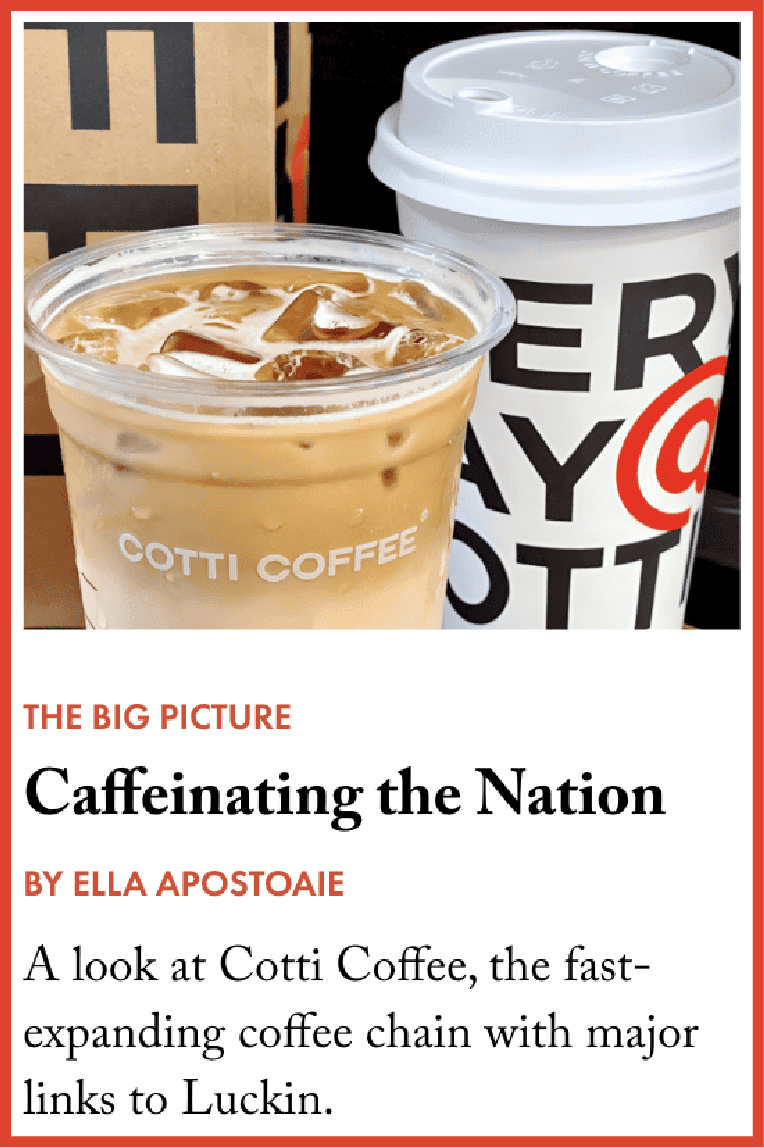
A lot of Cotti’s franchisees, adds Sander, are still waiting to hit profitability: “There’s been a lot of complaining since the end of last year of Cotti franchisees saying, ‘I have to follow this 9.9 yuan promotion all the time. I’m not making any money!’”
“While the 9.9 yuan promotions may drive short-term foot traffic and lure customers away from competitors, the reality is that these low-margin deals are severely impacting profitability,” adds Wen Huang, an external advisor at Bain and a veteran food & beverage executive. “Widespread dissatisfaction, early closures, and even bankruptcies are becoming more common as franchisees struggle to meet financial expectations in an oversaturated market.”
True to form, however, Cotti is not backing down. It has propped up franchisees with subsidies and offered to buy back equipment if an operation fails. Executives have repeatedly stressed that the company is prepared to continue the price campaign for three years.
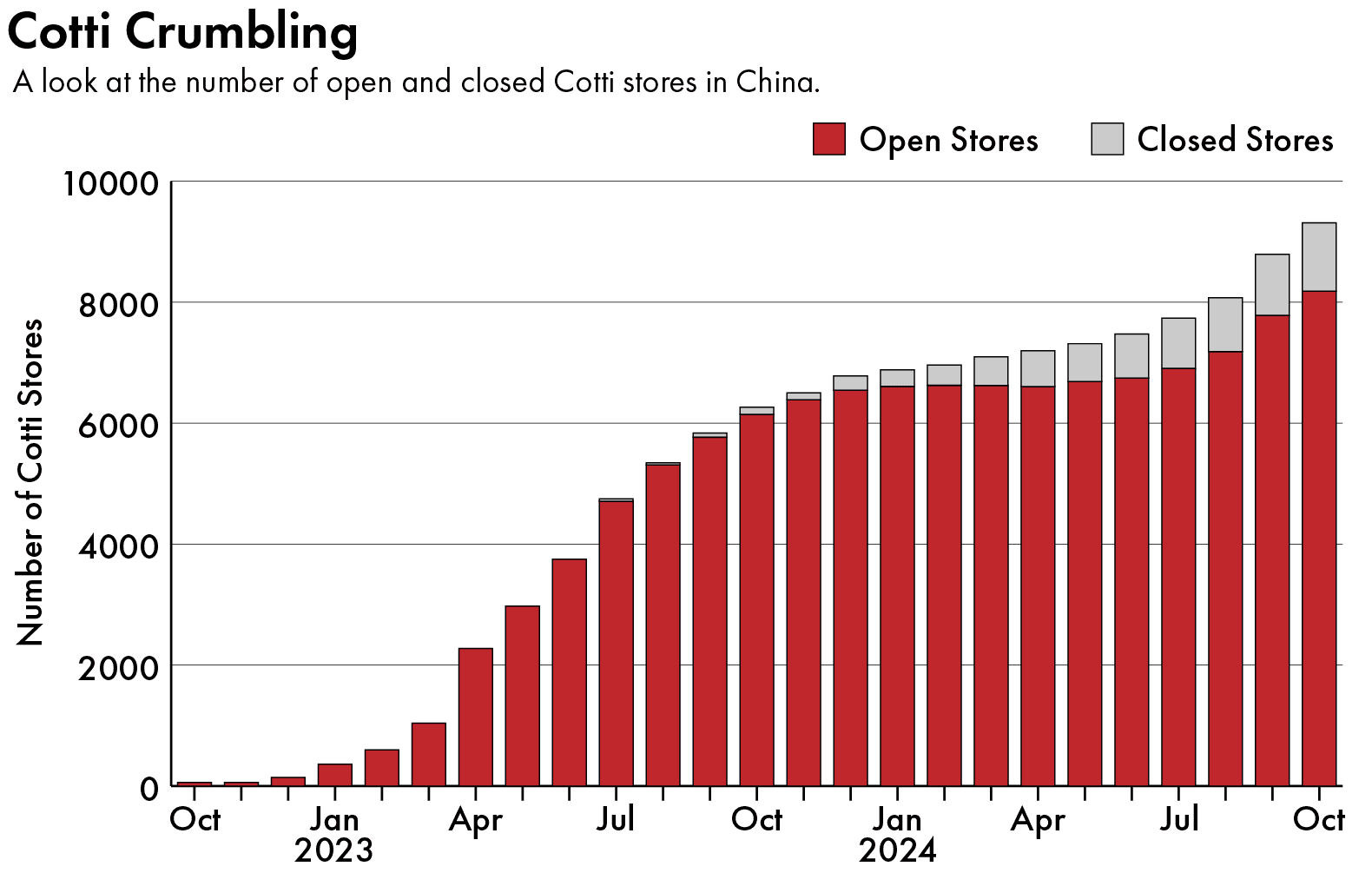
As Li Yingbo, Cotti’s chief growth officer, said in an interview last August, “profitability is not our main concern at the moment.”
FROM SPRINT TO MARATHON
Luckin has felt the heat. With the discounts squeezing its margins, it fell into the red in the first quarter last year, recording a net loss of 83.2 million yuan ($11.5 million).
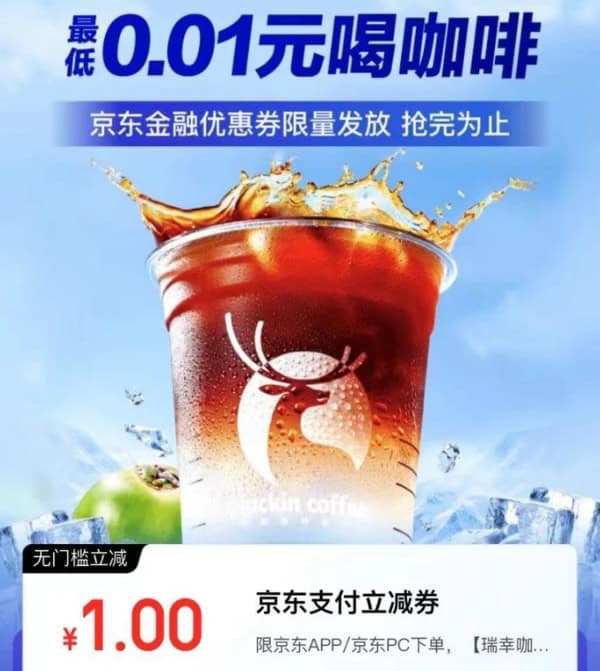
To regain its footing, Luckin has been recalibrating its pricing strategy. It narrowed promotions to a small selection of products, while trying to retain customers with 1 yuan flash sales and lucky draws for gadgets like Huawei’s smartphones.
But it will be difficult for both companies to maintain price cuts, especially as bad weather and yields push the cost of coffee beans to record levels.
“The level of deflation in the beverage market is frightening,” says Silverstein, of Canyon Springs Advisors. “[Chinese companies] compete like hell, and they drive the cost way down, and nobody makes any money.”
Cotti and Luckin’s race to the bottom is not unusual in Chinese industries; the same cut-throat price war has happened in EVs, solar panels and group discount apps. But given the bad blood between Luckin and Cotti, the coffee wars seem to be dragging on longer than many expected.
“What you normally see in price wars in China is some kind of truce, where the two parties say, ‘let’s stop this because we are killing each other,’” says Sander, of Tech Buzz China, adding that he’s surprised that that hasn’t happened yet.
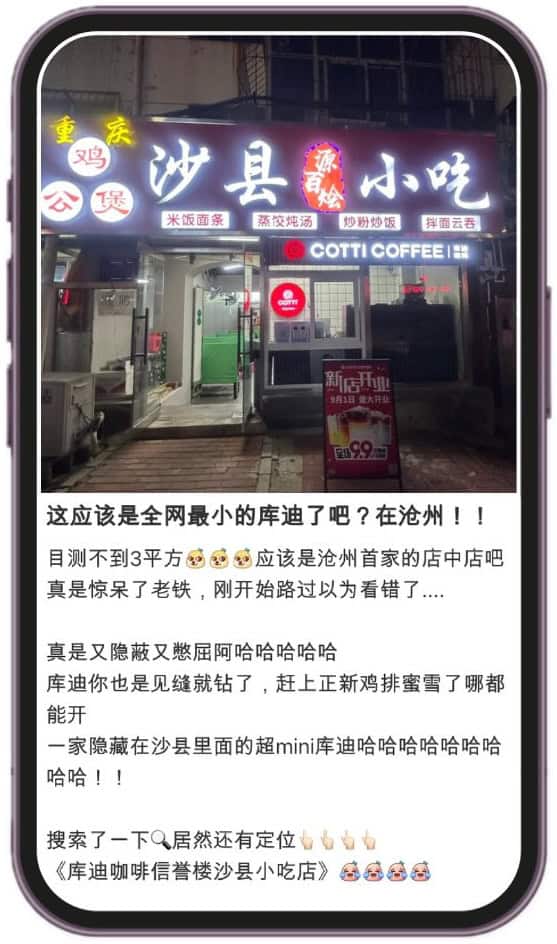
Instead, with a kind of stalemate taking place in saturated markets like Shanghai where supply has outgrown demand, both companies seem to be scrambling to penetrate lower-tier cities. Last year, Luckin opened a dozen outlets in Tibet and 22 in Xinjiang.
Cotti, whose pace of growth has slowed significantly since late 2023, tried to reinvigorate its momentum with the launch of Cotti Express, essentially a counterspace that nestles within another shop. It opened a few hundred of these in fourth and fifth tier cities in the second half of last year, before recently suspending the model amid widespread ridicule.
Even Starbucks accelerated its expansion in lower-tier cities and counties, where new outlets are outperforming those in major cities, the company revealed in its latest earnings report.
“Central China is the only part [of the country] that is still not yet saturated. That’s why everyone is trying to develop into those areas,” says Cabrera, of Ad Astra Coffee Consulting.
But while coffee executives often like to cite growing coffee consumption in China as evidence of market potential, whether coffee drinking can take hold in the country’s vast hinterland is subject to perennial debate. “There was a general sense that maybe the rise of coffee culture had peaked,” says Thomas Gatley, senior analyst at the research firm Gavekal Dragonomics. “There’s always been this back and forth on whether Chinese people actually like coffee or not.”
In China, Luckin is the pioneer that is educating the market and introducing consumers to coffee. But foreign markets are occupied by more mature brands, while Luckin is the newcomer.Chao Liang, an associate professor at CEIBS
Both Luckin and Cotti are also looking abroad to help relieve some of the pressure, but “expanding into diverse international markets brings a whole set of complexities that can slow growth and challenge the brand’s ability to maintain consistency,” says Huang, of Bain.
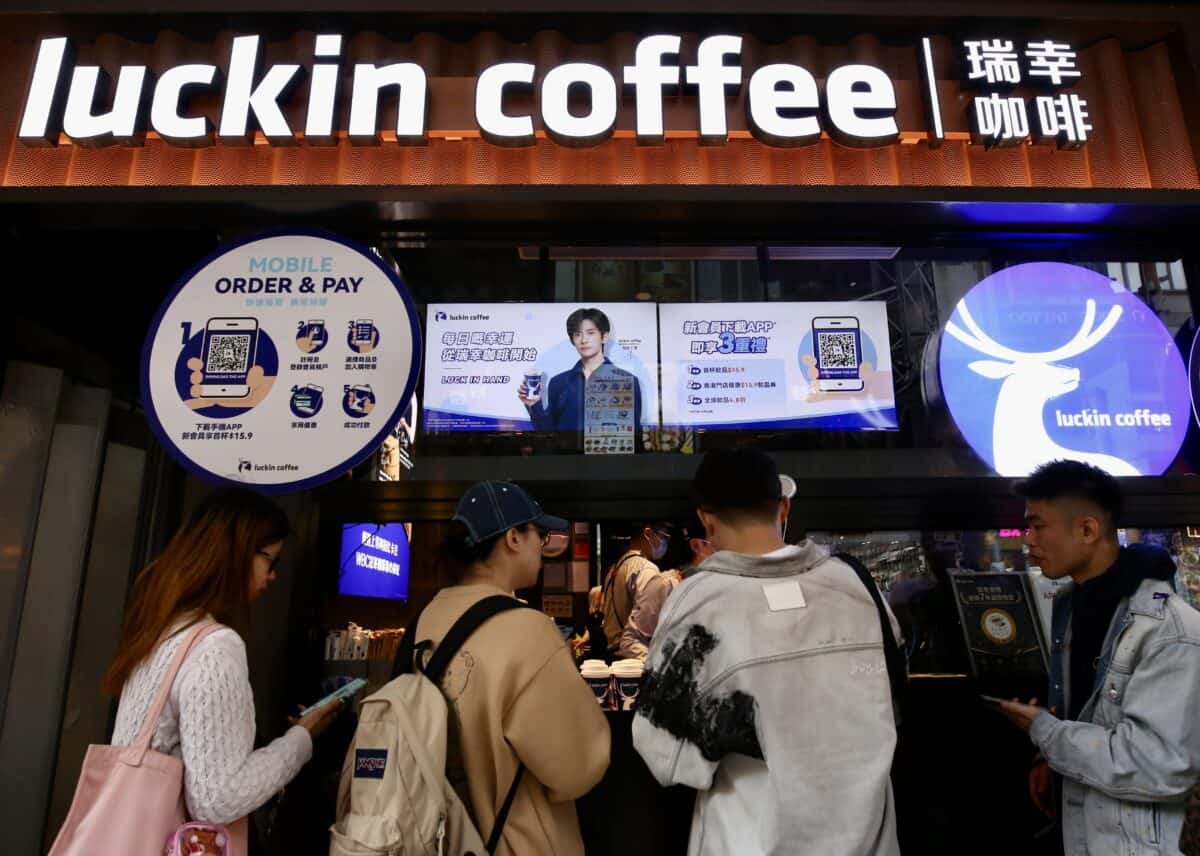
In Singapore, for instance, Luckin’s 45 self-operated stores racked up a loss of 76.3 yuan million ($9.88 million) in the first nine months of last year. And last weekend, it made an underwhelming debut in Hong Kong’s crowded coffee scene, where its prices — up to double those in mainland China and on par with Starbucks in Hong Kong — raised eyebrows
“In China, Luckin is the pioneer that is educating the market and introducing consumers to coffee. But foreign markets are occupied by more mature brands, while Luckin is the newcomer,” says Chao Liang, an associate professor at CEIBS.
Cotti’s performance is harder to gauge, but there are signs its expansion is wobbly. On one hand, it opened six outlets in Doha, Qatar, in recent months; on the other, all four of its outlets in Seoul had shuttered by the end of last year. (Cotti insisted the closures are temporary.)
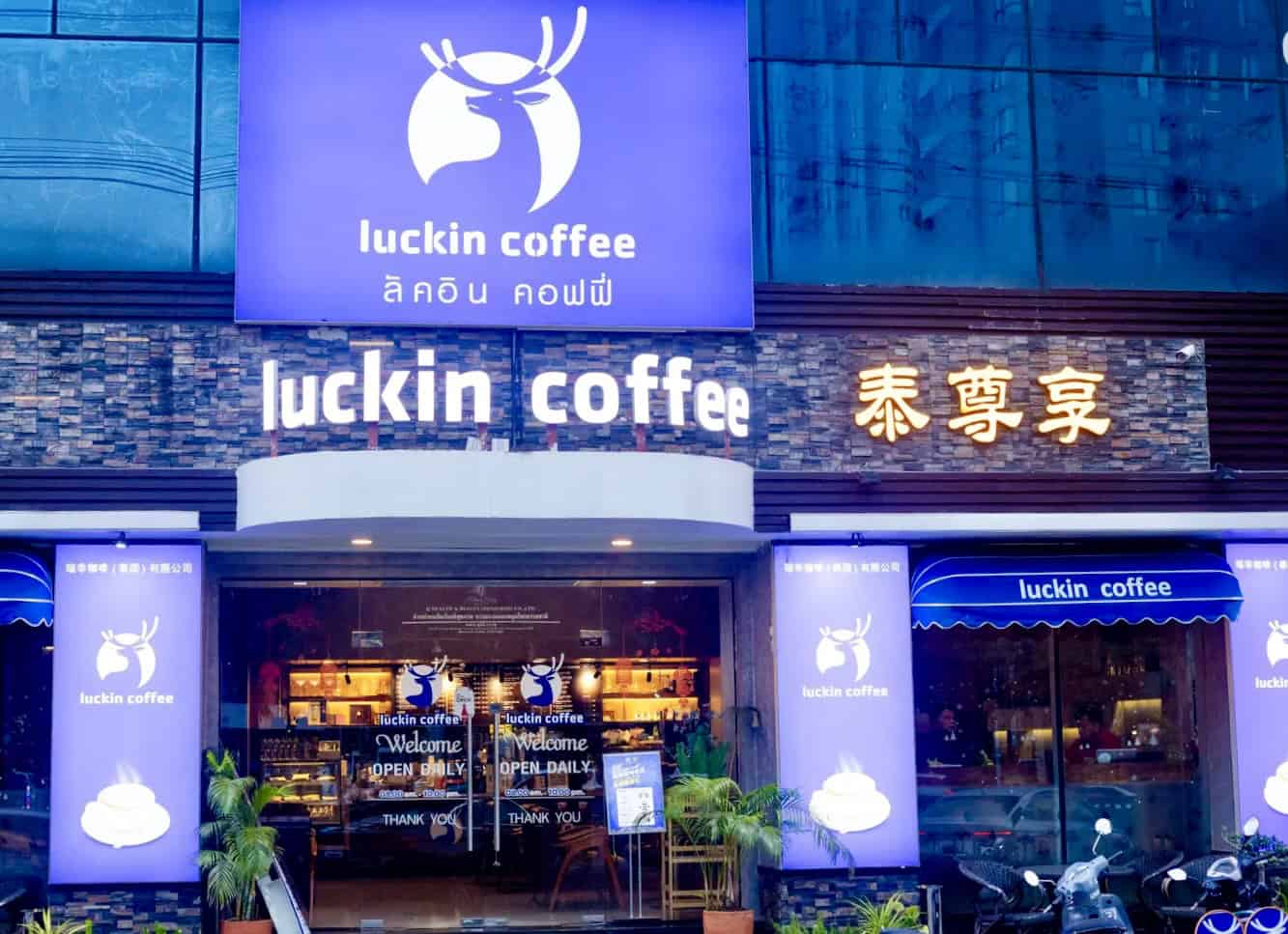
In many parts of Southeast Asia, there are already domestic versions of Luckin and Cotti — low-cost digital players backed by venture capital money — such as Indonesia’s Kopi Kanangan in Indonesia and Malaysia’s Zus Coffee. In Thailand, Luckin even lost a lawsuit to its copycat, which trademarked its logo and name before the Chinese company did.
“Luckin is going to struggle in Southeast Asia. It’s going to have a big battle on their hands in the emerging markets,” says Silverstein, of Canyon Springs Advisors.
It won’t be any easier in America, Silverstein adds, where hardly any foreign restaurant has been able to scale. “I don’t think this is going to be like China, where they can just build and build and build,” he says. “The odds are they’ll probably lose a lot of money.”
Some analysts have added that, despite its comeback, Luckin may also struggle to find investors willing to back it.

Luckin has released a report detailing the ways it has improved its corporate governance, including the establishment of several committees and a whistleblowing mechanism, but experts say there is little way of knowing how well they work. If anything, it has become harder for an outsider today to gauge the company’s business than it was four years ago, says Mike Braun, founder of Zenon Partners, a firm that specializes in financial recovery for foreign investments. Since it is no longer publicly traded, Luckin is subject to a less stringent disclosure and review regime, he notes, and the current environment in China means it is less likely a short-seller could do the research needed to check its numbers.
“I don’t see evidence that there are checks and balances provided,” Braun says. “Chinese laws are not really favorable for outsiders who want to go in and conduct an independent external verification of the data.”
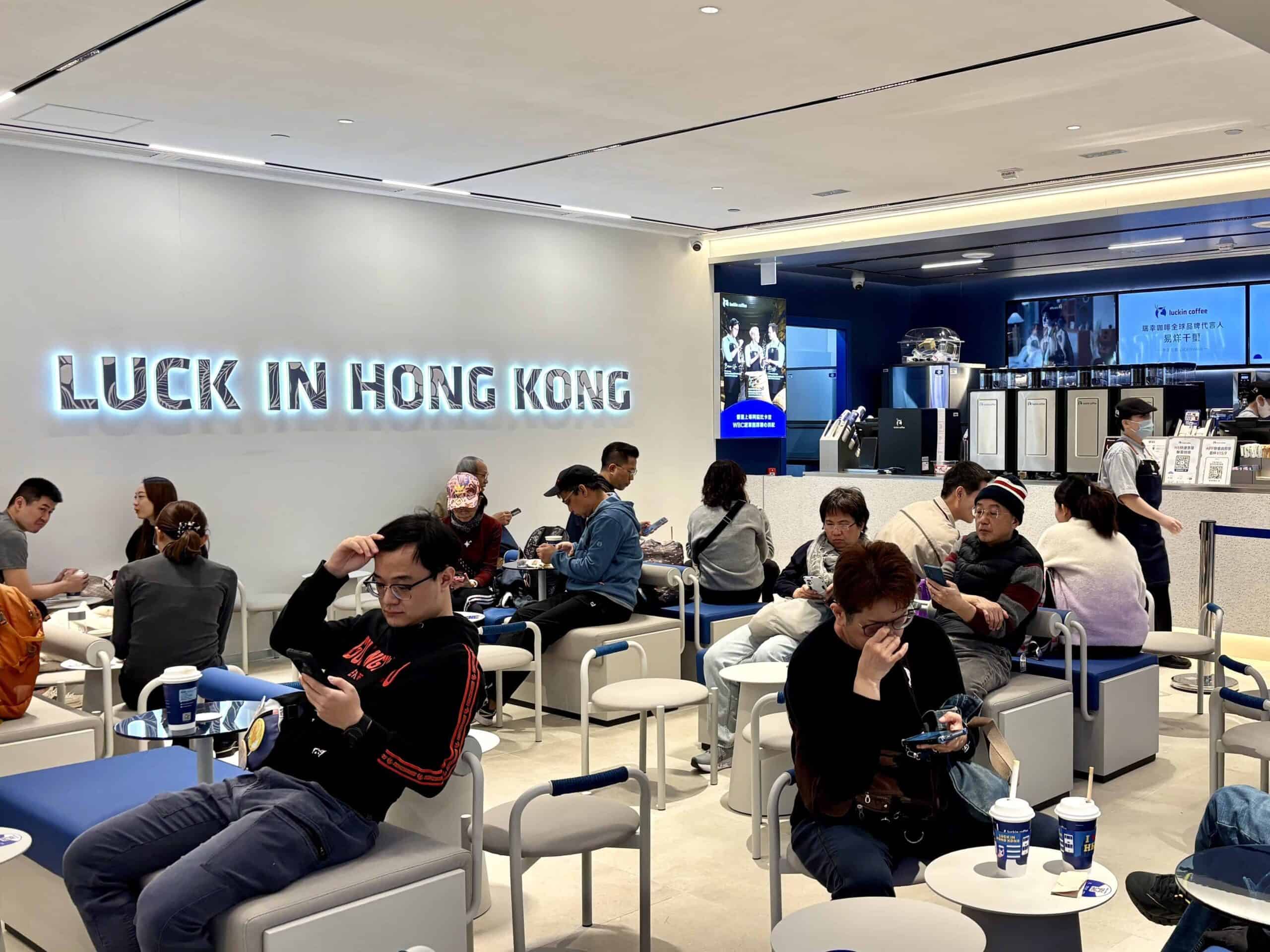
To raise the funds it needs to beat back Cotti once and for all, Luckin could decide to list again on an exchange. Given the geopolitical environment and the company’s history, analysts say a debut on the Hong Kong Stock Exchange is more likely than an uplisting on Nasdaq. Although Luckin is still going to be a “reasonably hard sell” given China’s macroeconomic outlook, Gatley, of Gavekal Dragonomics, says “it might have a window this coming year because the confidence of Chinese consumers and households is foremost in [Chinese] policymakers’ minds.”
Indeed, the China Securities Regulatory Commission recently greenlit Chinese bubble tea chain Guming’s plan for an IPO in Hong Kong, lifting an informal ban on the listings of food and beverage companies.
https://www.youtube.com/embed/DryLPv3r9WI?si=hCTx3-P5IFNNW4j4Scenes from the release of Luckin’s collaboration with Kweichow Moutai, September 5, 2023. Credit: CCTV
Ultimately, the question any potential Luckin investor — or even Cotti franchisee — has to answer for themselves is whether the company can continue its growth trajectory. Opinions on the matter seem to vary almost as much as they do on Luckin’s non-alcoholic beer americano concoction.
But what is certain is that the winner of the current coffee war between Luckin and Cotti will have run a sprint, and they’ll need to quickly regroup for the marathon race against Starbucks. As Guo pointed out last month, Luckin is still a fraction of the size of Starbucks globally and a long way from its “mission of creating a global coffee brand.” Although he seemed undaunted by Luckin’s ultimate goal to take on Starbucks, he sounded more cautious about the short term.
“We must also be vigilant,” he said, “that our rivals could upend us.”

Rachel Cheung is a staff writer for The Wire China based in Hong Kong. She previously worked at VICE World News and South China Morning Post, where she won a SOPA Award for Excellence in Arts and Culture Reporting. Her work has appeared in The Washington Post, Los Angeles Times, Columbia Journalism Review and The Atlantic, among other outlets.

